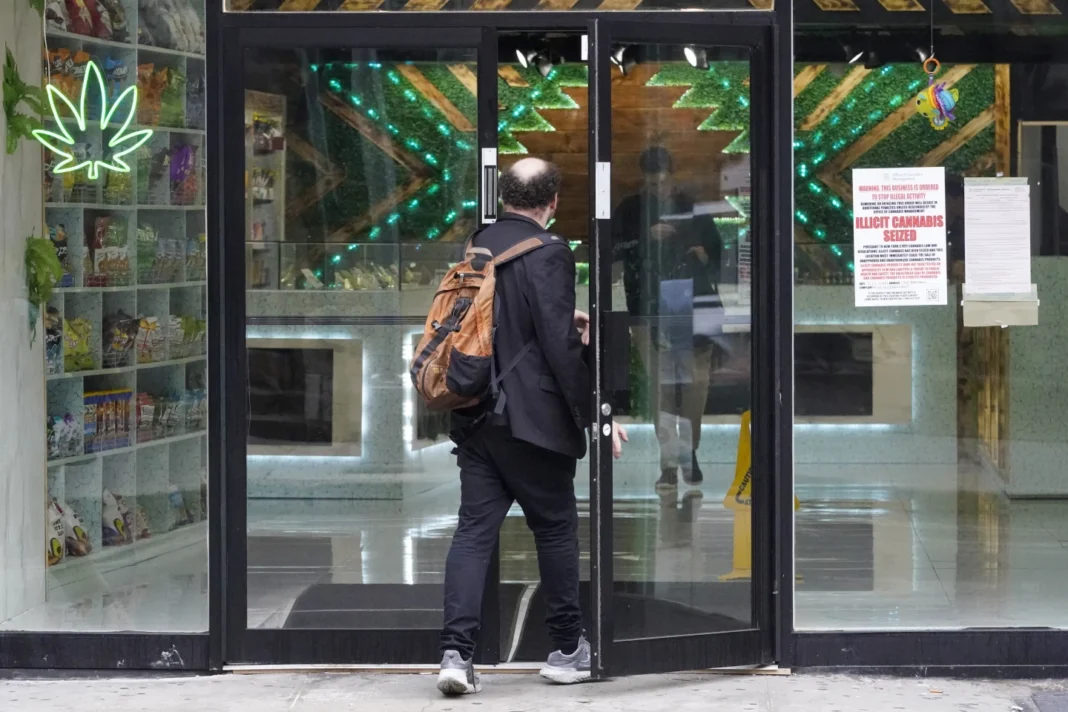|
Getting your Trinity Audio player ready...
|
By: Rob Otto
In an exclusive report by the New York Post, a significant majority of legal cannabis shop owners and licensees in New York State have expressed strong opposition to a proposal that could alter the buffer zones separating cannabis stores. According to a poll conducted by the 300-member New York Cannabis Retail Association (NYCRA), a staggering 94% of respondents are against changing the “proximity protection” rule, which currently mandates a 1,000-foot distance between cannabis stores.
The New York Post reports that the state Cannabis Control Board is considering offering waivers to this 1,000-foot rule for municipalities with more than 20,000 residents and reducing the 2,000-foot buffer for smaller towns. However, this potential change has sparked considerable concern among those already operating in the fledgling legal cannabis market.
“The numbers speak for themselves,” Jayson Tantalo, vice president of operations for the NYCRA, told the New York Post. “Our market is way too fragile to change the proximity protection rules. Why do it now? We’re in the infant stages of the market. And there’s still a crazy amount of illegal shops. It should be a message for state regulators.”
Tantalo, who, along with his wife Britni, invested tens of thousands of dollars on rent while awaiting a license to open their cannabis dispensary, Flower City Dispensary in Victor near Rochester, said he has heard that regulators may consider relaxing the buffer zone from 1,000 feet to 750 feet and from 2,000 to 1,750 feet in smaller towns.
“Our members do not want change. It throws instability in the market. There should not be any exceptions at all,” Tantalo emphasized in his conversation with the New York Post.
The NYCRA’s analysis of the survey findings echoes these sentiments, noting, “NYCRA members strongly support the existing standards for considering proximity protection exemptions. If changes to the existing regulations are to be implemented, NYCRA members want additional regulatory guardrails in place to ensure that such exemptions do not render their businesses economically unsustainable.”
The New York Post also highlights that many New York City lawmakers share this opposition to changing the distance rule, especially given the ongoing issue of illegal pot shops that continue to operate across the city. These lawmakers are concerned that loosening the buffer zones could lead to an oversaturation of cannabis stores, both legal and illegal, in their neighborhoods.
“They must be stoned,” Queens City Councilman Robert Holden quipped to the New York Post, referencing the regulators’ plans to potentially allow more cannabis stores to open in closer proximity.
Some licensed cannabis operators have even threatened legal action against the state if the distance requirements are relaxed, according to the New York Post. This brewing legal battle adds another layer of complexity to New York’s already tumultuous cannabis market.
The debate over buffer zones comes as New York’s cannabis industry faces a multitude of challenges. A recent court ruling could potentially allow numerous suspected unlicensed stores to reopen after being padlocked by city authorities. The judge ruled that the city’s cannabis enforcement did not follow proper procedure when shutting down these stores, a decision that could further complicate efforts to establish a stable and legal cannabis market in the state.




